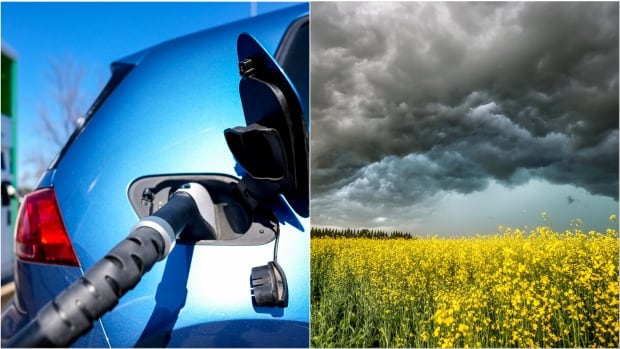China said on Tuesday it plans to launch an anti-dumping investigation into Canadian rapeseed oil imports after the Canadian government moved to impose tariffs on Chinese-made electric vehicles, sending domestic rapeseed oil futures prices to their highest in a month.
Canada followed the United States and the European Union and announced last week that it would impose a 100% tariff on Chinese-made electric vehicle imports and a 25% tariff on steel and aluminum imports from China.
“China strongly condemns and resolutely opposes Canada’s discriminatory, unilateral and restrictive measures on imports from China, despite opposition and obstruction from many parties involved,” a commerce ministry spokesman said in a statement.
The ministry said China would also launch an anti-dumping investigation into some Canadian chemical products.
In a statement to CBC News, Agriculture Minister Lawrence MacAulay said Canadian canola producers must follow international trade rules.
“Today’s announcement is deeply concerning and I am working with colleagues across government and industry to closely monitor developments,” he said. “We will continue to protect and support our industry every step of the way.”
More than half of the canola produced in Canada is exported to China, the world’s largest importer of the oilseed. Canola, also known as rapeseed in certain varieties, is used for cooking oil and for a wide range of products, including renewable fuels.
Following the announcement, China rapeseed meal futures on the Zhengzhou Commodity Exchange rose 6% to 2,375 yuan (US$333.56) a tonne, the highest since Aug. 6.
ICE canola contracts for November delivery fell by $45, or 7 percent, to $569.7 a tonne, the daily limit.
“Canada’s canola exports to China have increased significantly, raising suspicions of dumping. Exports are expected to reach US$3.47 billion in 2023, up 170 percent from the previous year, while prices have continued to decline,” the ministry said.
“Because of Canada’s unfair competition, China’s rapeseed-related industries continue to suffer losses.”
China’s rapeseed meal prices have fallen 22 percent so far this year due to abundant supplies of the oilseed and rising domestic production.
“Current domestic consumption (of edible oil) is not strong and domestic stocks are abundant,” said Ma Wenfeng, a senior analyst at Beijing Oriental Agricultural Consulting, an agricultural consultancy in Beijing.
Substitute Supply
China imports canola mainly from Canada, followed by Russia and Mongolia.
“The number of visitors from Canada is growing rapidly,” Ma said.
Canada, the world’s second-largest economy, is set to import 5.5 million tonnes of canola in 2023, worth US$3.72 billion. Imports from Canada accounted for 94 percent of the total.
By comparison, the majority of China’s electric vehicle exports to Canada come from Tesla’s Shanghai factory, and local Chinese companies do not yet have significant exposure to that export market.
New tariffs on Chinese-made electric vehicles are meant to protect Canada’s nascent manufacturing industry, but there are concerns about how potentially higher-priced electric vehicles will affect already limited competition.
In 2023, when Tesla began shipping its Shanghai-made electric cars to Canada, Chinese auto imports into Vancouver, Canada’s largest port, surged 460% from the previous year to 44,356 units.
A Chinese spokesman said the country would appeal to the World Trade Organization’s dispute settlement mechanism regarding Canada’s related practices.
The Canadian Embassy in Beijing did not immediately respond to a request for comment.
China has also launched trade investigations into imports of pork, brandy and dairy products from the European Union in response to the export restrictions on electric vehicles.
China has targeted Canadian canola in previous trade disputes: In 2019, China suspended two Canadian canola exporters, but lifted the restrictions three years later.
Analysts said China could turn to Australia and Ukraine as alternative sources of supply, especially given Australia’s abundant canola production.
European canola production has been affected by bad weather, while agricultural trade between China and Ukraine has been restricted.
“We expect China to buy more volumes from Australia once restrictions on Australian canola are relaxed,” said Ole Houe, director of advisory services at Icon Commodities in Sydney.
“At present, Australian canola exports to China are very small, around just 500 tonnes from the start of 2024.”
China has restricted imports of Australian canola over concerns about black rot.

